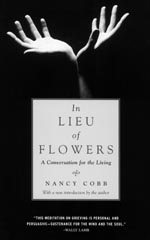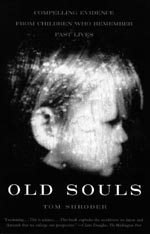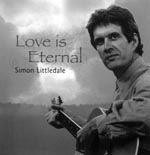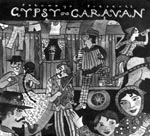How We Live Our Yoga
Beacon Press 2001
Valerie Jeremijenko, ed.
 Ever since I started practising yoga, I have been waiting
to read a book like this. How We Live Our Yoga
is a collection of personal stories by "teachers and practitioners
on how yoga enriches, surprises, and heals us," edited by
Valerie Jeremijenko. The anthology contains fourteen personal
essays, some of which provide well-articulated insight into
the place and potential of yoga in our lives as Westerners,
others that bring to mind familiar questions and emotions,
and some that offer a much needed critique of the North
American yoga craze.
Ever since I started practising yoga, I have been waiting
to read a book like this. How We Live Our Yoga
is a collection of personal stories by "teachers and practitioners
on how yoga enriches, surprises, and heals us," edited by
Valerie Jeremijenko. The anthology contains fourteen personal
essays, some of which provide well-articulated insight into
the place and potential of yoga in our lives as Westerners,
others that bring to mind familiar questions and emotions,
and some that offer a much needed critique of the North
American yoga craze.
Elizabeth Kadetsky's "Coming Apart in Pune," a story of her time studying with the Iyengar family, is a refreshingly unromantic look at India. She does not shy away from exposing the festering wounds, the unchecked egos and her own disintegration, perhaps because at the end of her journey she discovers the beauty of India, the humanity of B.K.S. Iyengar and a sense of completeness in the face of incoherence.
In "The Meaning of Brahmacharya," philosopher and conceptual artist Adrian M.S. Piper wades into the cultural bias behind Western skepticism toward celibacy. She shows how cultural attitudes can twist our understanding of yogic concepts and reinforce our ingrained habits, such as sensory gratification or attachment to this world.
The book contains recurring themes, including the connections between poetry and yoga. Stanley Plumly writes in "Lyric Yoga": "Writing poems may or may not be yoga by other means. Poems, as suchdo take on the dynamic interactions implicit in yoga, particularly in the way that form and content, body and mind, turn inseparable."
Throughout the book, language is used with accuracy and discrimination, and many of the writers make note of the difficulty in putting their practice into words. In one of the more personal essays, "Journey in Yama-yama Land," Robert Perkins tells the story of how yoga helped bring him out of life-crushing depression. "Neither yoga nor depression is easily put into words," writes Perkins. "Both yoga and depression are organic, lusciously so, and work in and out of time. They are not verbal."
How We Live Our Yoga suggests the emergence of a new voice in the writing about yoga in the West. Over the past decade, I have read numerous essays by Buddhists in which they recount the discovery of their spiritual practice, how it saved or enlivened or corrected them. Buddhism in North America seems to have found its voice, as evidenced in the countless titles, and even entire publishing houses, devoted to the exploration of Buddhist philosophy and practice for the Western practitioner. In comparison, writing about yoga has been more slippery and less articulate. Often yoga has been either reduced to fashion and fitness, or marginalized as an esoteric system of spiritual exercises. The authors in this collection reject these definitions by showing us how they incorporate into their lives both the ancient traditions of yoga and the practicalities of living in North America.
by Lesley Marian Neilson
back to top
In Lieu of Flowers: A Conversation for the Living
Nancy Cobb
Pantheon Books 2001
 Within the first few pages of Nancy Cobb's book, In
Lieu of Flowers, I felt that I was meeting people I'd
want to know as friends, people who could meet death with
a healthy mix of humour, acceptance and plain common sense.
Cobb's writing has the same intimate quality as an interview
on late-night radio, and through her I heard the voices
of people engaged in the timeless process of restoring meaning
to life in the aftermath of death.
Within the first few pages of Nancy Cobb's book, In
Lieu of Flowers, I felt that I was meeting people I'd
want to know as friends, people who could meet death with
a healthy mix of humour, acceptance and plain common sense.
Cobb's writing has the same intimate quality as an interview
on late-night radio, and through her I heard the voices
of people engaged in the timeless process of restoring meaning
to life in the aftermath of death.
It doesn't seem to matter what the circumstances are death catches us by surprise even when we see
it coming. Yet the stories and conversations in this beautifully written book tell us that we do not
have to be shattered by death's arrival. Death's compassionate face calls us to respond to the important
questions of life, including, Why I am here? and What gives my life meaning? As the author puts it,
"Rather than waiting for the last act, wouldn't it be wiser to pay attention to the performance along the
way to the work we choose, the place we call home, the people we love?"
Over a two-year period, Nancy Cobb lost both her parents, first her father from cancer, then her mother after a long, painful descent into Alzeimer's. Cobb's narrative passages describing this journey with her mother are wrenchingly honest and terribly human. There's nothing easy about the process of death and the pain it incurs. But as Cobb makes clear, without humour the passage through death to reconciliation and peace would be unbearable.
The experience with her parents opened Cobb's heart in ways she had never expected. It wasn't long before people began to enter this space she had created in her heart, drawn by a common willingness to use death to enlarge their understanding of life. Like the new bank teller who glanced at a publisher's cheque Cobb was depositing and asked about her writing. Banking business was set aside to hear about the death of the teller's grandmother and how she appeared in a dream a week after her passing. Cobb and the teller, formerly strangers, talked as intimately about dreams and the passing of loved people as if they had known each other since childhood. Perhaps it was this experience or the accumulation of experiences like it that prompted Cobb to make one of her most profound observations in the book:
"Death forces a grace period on all of us. The dying offer the living a final chance to be the best that they can be. We must take our cues from them, value the moments that lead up to and follow their departure, and work toward acceptance after they are gone. This is a vow as sacred as any we will make over the course of our lifetimes."
Death is commanding a lot of attention these days for reasons that we all need to explore.
In Lieu of Flowers deserves attention because it seeks to give voice to the deepest thoughts and feelings of normal, everyday people about an element of life that touches us all. Perhaps it is this "normalcy" that makes this such an important book. No one Cobb has written about, including herself, demonstrates any overt spiritual ambition. Yet together their conversation lifts death beyond the limits of fear to a high level of inspiration and wonder.
As Cobb says, "Perhaps the ultimate payoff for a life lived consciously is a death faced with more acceptance than regret." Accept this idea and the rest seems clear. All that remains is the decision to start.
by Swami Gopalananda
back to top
Old Souls: Scientific Evidence for Past Lives
Tom Shroder
Fireside 2001
 I like to think there is a compassionate aspect of the Divine
that will give us more than one chance at the wheel of life,
and that death isn't the end but more like the night from
which we have a chance to wake up to another opportunity.
Life seems too short to learn everything in one lifetime.
I like to think there is a compassionate aspect of the Divine
that will give us more than one chance at the wheel of life,
and that death isn't the end but more like the night from
which we have a chance to wake up to another opportunity.
Life seems too short to learn everything in one lifetime.
But what can we expect at the time of death? Where do we go? Do we decide to come back? Can we remember past
lifetimes? And what is it we need to learn in this lifetime?
Tom Shroder, a Washington Post editor, and a skeptic about reincarnation, brings his investigative
skills to pursue the question of life after death. He travels with Dr. Ian Stevenson,
a professor of psychiatry at the University of Virginia, who has dedicated his career to
collecting information about reincarnation and documenting thousands of children who have
reported remembering past lives. Old Souls is partially about Dr. Stevenson's quest and partially
about Shroder's experience traveling from Lebanon to India and even to Virginia with this determined
researcher and all the incredible meetings and adventures they have.
Stevenson uses a scientific approach in his investigations in the hopes that other scientists will take
his investigations seriously, and that his findings will gain acceptance and credibility. He does everything
meticulously, from measuring birthmarks in order to compare them to possible death injuries from a former
life, to checking out all possible connections, confirmations and flaws in the children's stories. He will
often return years later to follow up his subjects of study.
Some of the stories are startling: young children who ask to go back to their
real homes, children who recognize people from their former life and who know
names and secrets that no one else would know. I wonder what we would hear if
we listened that closely to the young children we know, catching their connections
to a former life – would we take them seriously?
This book offers a peek into an inexplicable part of life. What the stories
reveal, as Tom Shroder says, is "less important for what they say about the
specifics of what happens after we die, than what they say about how the world
works that – in some way – we're all connected by forces beyond
our understanding."
by Swami Radhananda
back to top
Love is Eternal
Shakti Songs 2001
Simon Littledale
 Love is eternal, love never dies. So goes the chorus of
the title track from this offering from the late Simon Littledale,
a.k.a. Shakti Kumar. The chorus from the title track takes
on an extra shade of poignancy in light of the fact that
Littledale passed away in March of 2001, a release of another
sort which coincided with the release of Love is Eternal.
Love is eternal, love never dies. So goes the chorus of
the title track from this offering from the late Simon Littledale,
a.k.a. Shakti Kumar. The chorus from the title track takes
on an extra shade of poignancy in light of the fact that
Littledale passed away in March of 2001, a release of another
sort which coincided with the release of Love is Eternal.
Exceedingly simple and direct, Littledale's lyrics speak to and about the moon, standing stones, the
lake of the sky and his guru all images that stand outside of the self and manage to endure all of the
changes that define human existence. A long-time yoga student, in this album Littledale has completely
offered his knowledge and obvious delight in yoga with humour and simple devotion.
Musically speaking, Littledale is firmly ensconced in the acoustic folk-rock tradition, with such easily
detectable influences as the Beatles, Neil Young, the Crash Test Dummies and Bruce Cockburn. At times,
the melodies veer a hair too close to those of well-known artists, thus seeming slightly derivative. Due
to the overtly spiritual nature of the album, it is unlikely to enjoy much crossover success, and may appeal
mostly to yoga practitioners. However, there are more than enough heartfelt moments both lyrically
and musically in Love is Eternal for it to be worth a listen.
by Wren Nasr
back to top
Gypsy Caravan
Various Artists
Putamayo World Music 2001
 When people ask me what kind of music I like best, generally
I reply that I am drawn to music that touches my spirit
and inspires me to move. Movement of the gross level takes
the form of journey, dance, physical expressiveness. In
its more subtle manifestations, I think of movement as the
exercise of intellect and the migration of soul. Music that
inspires me to move first appeals on a sentient level perhaps
a beat matches the particular rhythm of my pulse, or a voice's
unique resonance induces me to attach sound to the movement
of breath in my body. Yet music I return to again and again
seems to communicate on an even more refined level; it extends
an invitation to investigate the truth and mystery of human
endurance.
When people ask me what kind of music I like best, generally
I reply that I am drawn to music that touches my spirit
and inspires me to move. Movement of the gross level takes
the form of journey, dance, physical expressiveness. In
its more subtle manifestations, I think of movement as the
exercise of intellect and the migration of soul. Music that
inspires me to move first appeals on a sentient level perhaps
a beat matches the particular rhythm of my pulse, or a voice's
unique resonance induces me to attach sound to the movement
of breath in my body. Yet music I return to again and again
seems to communicate on an even more refined level; it extends
an invitation to investigate the truth and mystery of human
endurance.
Perhaps this is why I find Gypsy Caravan frequently returning to my CD player. A compilation CD,
Gypsy Caravan features artists from Eastern Europe, France and Spain performing songs steeped in
both the rich tradition of gypsy music and the contemporary cultures from which the music springs. What I
like best about this CD, which is eminently listenable, is that it communicates the strength and resilience
of a culture that has moved in the margins of human society throughout its history.
The songs on Gypsy Caravan convey a lesson about survival. The music is textured, resonating with soulful voices, rhythmic percussion, and wind instruments that punctuate string melodies like stars punctuate the solitude of the night sky. With great depths of humour, joy, sadness and sincerity, the musicians weave together the sounds of a culture that has flourished creatively despite disenfranchisement, diaspora and social stigmatism. The effect of the CD is uplifting and inspiring. Underlying the technical virtuosity of the artists is the pervasive expression of gratitude for the richness of life.
Gypsy Caravan comes with informative liner notes and offers a pleasing journey through the
highly expressive landscape of the gypsy soul.
by Kendra Ward
back to top